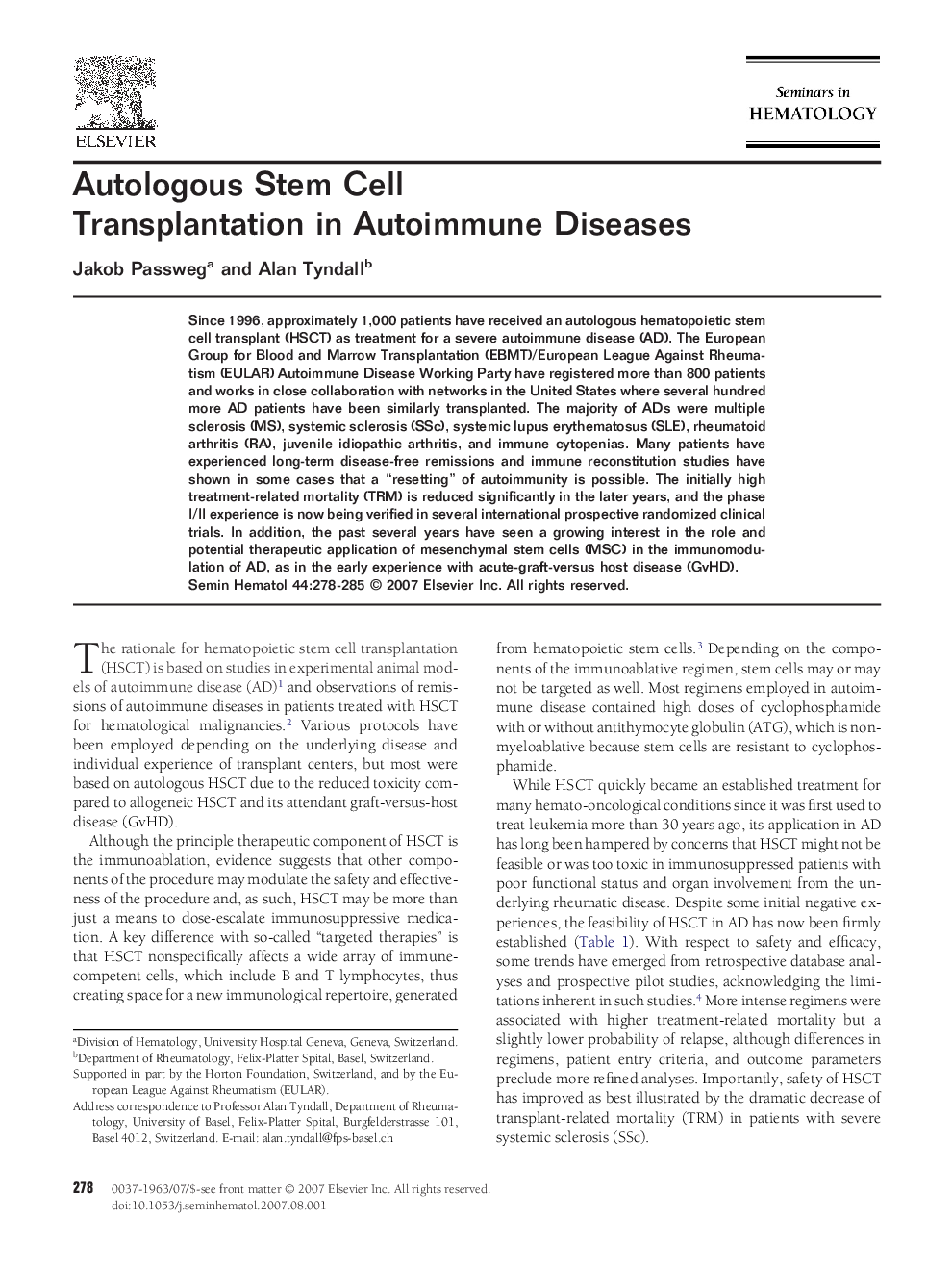| Article ID | Journal | Published Year | Pages | File Type |
|---|---|---|---|---|
| 3333971 | Seminars in Hematology | 2007 | 8 Pages |
Abstract
Since 1996, approximately 1,000 patients have received an autologous hematopoietic stem cell transplant (HSCT) as treatment for a severe autoimmune disease (AD). The European Group for Blood and Marrow Transplantation (EBMT)/European League Against Rheumatism (EULAR) Autoimmune Disease Working Party have registered more than 800 patients and works in close collaboration with networks in the United States where several hundred more AD patients have been similarly transplanted. The majority of ADs were multiple sclerosis (MS), systemic sclerosis (SSc), systemic lupus erythematosus (SLE), rheumatoid arthritis (RA), juvenile idiopathic arthritis, and immune cytopenias. Many patients have experienced long-term disease-free remissions and immune reconstitution studies have shown in some cases that a “resetting” of autoimmunity is possible. The initially high treatment-related mortality (TRM) is reduced significantly in the later years, and the phase I/II experience is now being verified in several international prospective randomized clinical trials. In addition, the past several years have seen a growing interest in the role and potential therapeutic application of mesenchymal stem cells (MSC) in the immunomodulation of AD, as in the early experience with acute-graft-versus host disease (GvHD).
Related Topics
Health Sciences
Medicine and Dentistry
Hematology
Authors
Jakob Passweg, Alan Tyndall,
